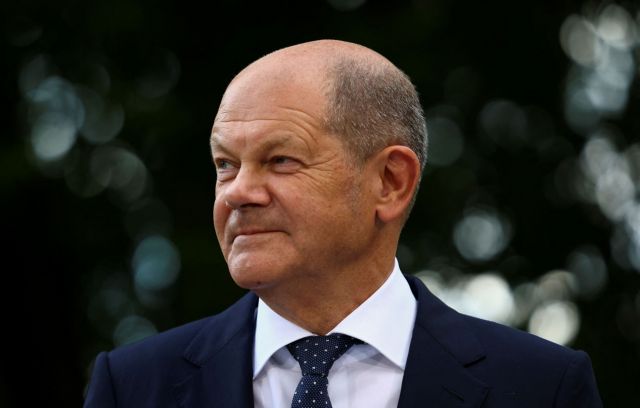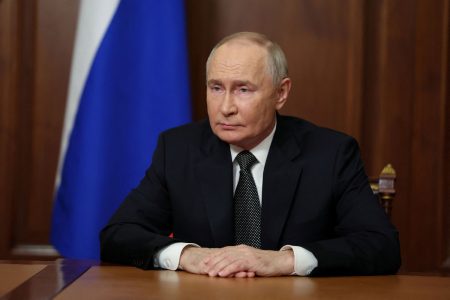German Chancellor Olaf Scholz’s scheduled talks with Prime Minister Kyriakos Mitsotakis in Athens on 27 October will cover a wide-ranging agenda from the war in Ukraine and the circular deal to send armoured vehicles to Kyiv, to further arms collaboration, the situation in the Eastern Mediterranean and energy (following the second illegal Turkey-Libya cooperation agreement recently) and Turkey’s constant threats of war in the Aegean, an issue on which Athens would like to have a stronger denunciation from the German Chancellor than Berlin has expressed until now.
Scholz will be in Athens one day after a visit to Paris for talks with Emmanuel Macron, and the Greek-German collaboration in arming Ukraine, to which Athens is sending 40 Soviet BMP-1 armoured vehicles and is receiving in return 40 German Marders, will be high on the agenda in talks with Mitsotakis.
One day after the talks, the German Marders will take part in the annual military parade in Thessaloniki marking OXI Day, Greece’s refusal to surrender to Mussolini’s Italy and the subsequent war, in which Greece’s successes forced Hitler’s Germany to step in.
Ankara has expressed its consternation over Greece’s acquisition of the German armoured vehicles.
Berlin does not want to be a direct party to Russo-Ukrainian war
The so-called circular deals allow Germany to arm Ukraine as it has promised without being a direct party to the Russo-Ukrainian war, while for the countries that send arms directly to Ukraine the German arms they receive in return will represent an upgrade of their arsenal, according to Berlin.
Some former military top brass in Greece, however, have questioned whether the Marders indeed serve the country’s defensive needs against Turkey better than the BMP-1.
Berlin has made similar circular deals with the Czech Republic and Poland.
Further Greek-German arms procurement cooperation
The arms deal involving Ukraine reportedly may lead to a more expansive Greek-German arms cooperation.
According to a recent report in the German daily Welt, reported on by DW, the German arms giant KMW (Krauss-Maffei Wegmann), the European market leader in heavily armoured vehicles, is planning a collaboration with the Mytilineos Group, a global industrial and energy company, for the co-production in Greece of third generation Leopard 2 battle tanks.
Energy cooperation
Berlin has for quite some time expressed an interest in energy cooperation with Greece, which will reportedly be on the agenda of the Scholz-Mitsotakis talks.
Greece’s capacity for the development of renewable energy sources and for the storage and transport of LNG have long been of particular interest for Berlin.
Athens has strongly touted its future capacity for energy exports to Europe, as underlined very recently during Energy Minister Kostas Skrekas’ during a visit to Berlin.
Berlin’s stance on Turkish provocations, threats of war against Greece
Germany’s public statements regarding Ankara’s threats of war against Greece have been lukewarm at best, though Berlin, like Washington, has made statements rejecting challenges to countries’ territorial integrity, in this case in the Aegean.
Wolfgang Buchner, the deputy spokesperson of the federal Government, said on 21 October that Berlin does not approve of aggressive statements about neighbours, but also that it is best that one not overly stress every statement of the Turkish leadership.
“We always make it clear that we do not consider it right to make threats or unfriendly statements against neighbours. The government makes this clear at every opportunity. The foreign ministry also always makes this clear,” Buchner said, while adding: “I do not believe, however, that we should talk a great deal about every phrase that is uttered,” Buchner said.



